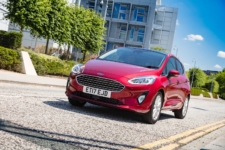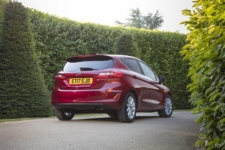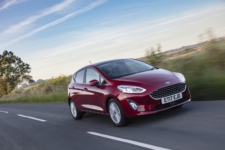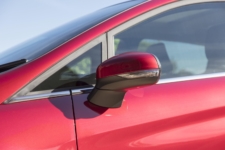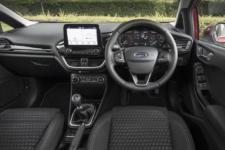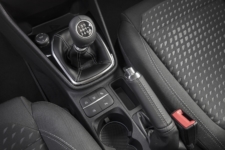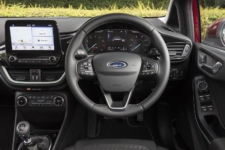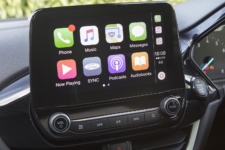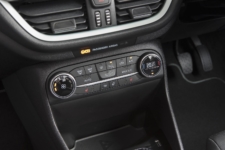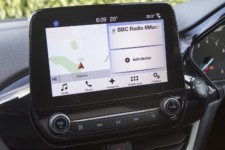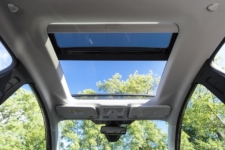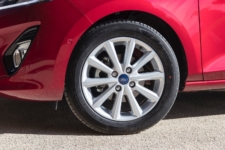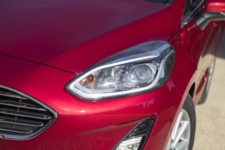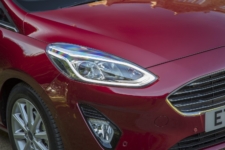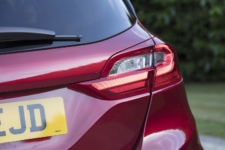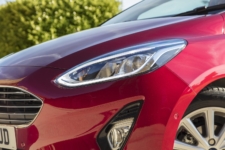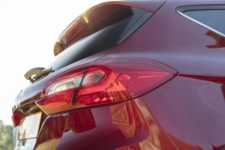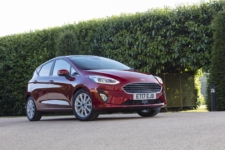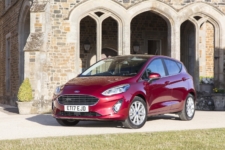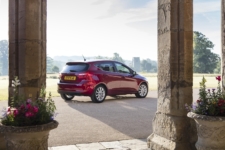Back in the day...1976: It might have been Amigo, Bambi, Bebe, Bolero, Bravo, Cherie, Chico, Fiesta, Forito, Metro, Pony, Sierra, Tempo...those thirteen names had all been under consideration for the final decision on what to call the hugely-important new global small car from the Ford Motor Company.
Tom Scanlan enjoys the All New Ford Fiesta Titanium 1.0T EcoBoost 125PS
Finally, the big boss, Henry Ford II himself, decided: Fiesta, he said. Since then, more than eighteen million have been sold in their successive evolutions. More recently, Ford’s 3-cylinder petrol engine has been awarded three OVERALL Engine of the Year titles since it was first introduced in 2012, along with even more top-spots in the Under 1-litre category...thirteen categories in all now.
That is a fine achievement, independently judged, and in 2017, by fifty-eight motoring journalists from thirty-one countries. Well, I have to say, that, having looked through my reviews of all sort of other makes of car with small 3-cylinder engines, they are all on a par. When it comes to the engine itself, absolutely no complaint. They all endow the car with remarkable performance for such a diminutive unit. But they also need you to put your foot down for sharp overtaking, for speeding up long hills (having dropped down a gear or two), or for accelerating away from a standstill. These engines will all do this very willingly but at a cost. And that is in economy. In the Fiesta’s case, given the official combined consumption figure of 65.7 mpg, even if this is only a guide, my trip computer indicated of 44.1 mpg, illustrates my point and is, in my experience, typical of all such 3-cylinder-powered cars. Having said that, conditions were generally busy and challenging during much of my driving.
CLICK TO WATCH OUR DRIVE.CO.UK VIDEO FROM THE LAUNCH OF THE ALL NEW FORD FIESTA
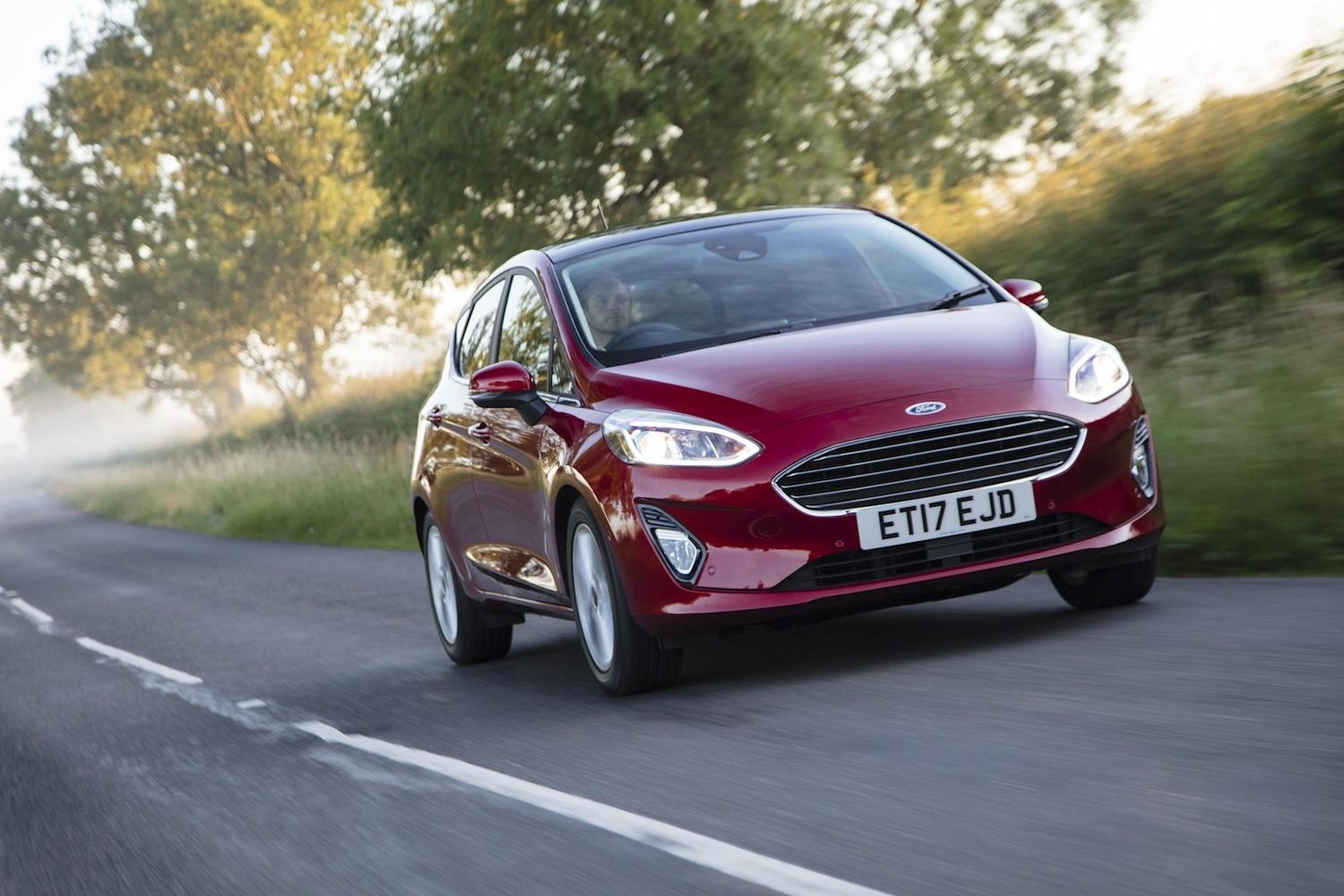
Another typical 3-cylinder characteristic is the drumming inside the car when the engine is working at the bottom of its rev-range, from around 1000 to 1500 rpm. An indicator in the instrument cluster tells you when you should best change up to another gear. So you do and then you get that slightly unpleasant drumming in the cabin that suggests that you should have stayed in that lower gear. The Fiesta is typical in this regard.
But Fiesta is also Britain’s best-selling car and has been, very remarkably, ever since this small Ford was first launched under that name in 1977. So, among the many thousands of owners of the current three-cylinder version, do any others relate to my comments? Two out of every five Fiestas have this power plant. I would hope that Ford NVT engineers might agree that work could be done to eliminate the drumming, either by more balancing work in the engine, or, perhaps less satisfactorily, by damping or vibration absorption in the body shell.
So why have the first four hundred words of my report dwelt upon this one aspect?
Because the rest of the car is so good! In all other regards, I really enjoyed the whole Fiesta experience. It looks good; it feels good...literally: the major controls, functions, rather, like the steering and gear-change, feel good to use. The minor controls such as switches all feel solidly placed with quality materials.
To drive, the Fiesta purveys a strong sense of security in its handling and braking. My week in the car found it having to deal with some severe weather with a lot of heavy rain and it never felt anything less than in command of the situation.
In the darkness of winter evenings, the instruments, looking smart and easily readable with blue needles showing the speed and revs, were easy to read at a glance. The Driver Assistance Package included those very welcome automatic high-beam lamps that dip for oncoming traffic and behind the cars in front and pick out road signs so well at night.
Two more much-appreciated Ford features are the heated front quick clear windscreen for instant de-misting on a cold morning and the very clever door-edge protectors which take the worry out of close-proximity parking. At least from your point-of-view, even if they add £85 to the price. Both simple and obvious solutions.
The interior was well-finished, mainly in black in the test car.
As far as luggage capacity is concerned, although the rear seats, of course, fold forward 60/40, the extended load space is not completely flat.
So: £19,000. Is it worth it? Fords are nothing if not competitive, so it won’t take long to work out if any rivals that take your fancy could produce a real challenge.
Statistics to bear in mind are the lowly 98 g/km emissions and the 0-62 mph figure of 9.9 seconds.
If motorway driving is a good part of your travel, then the car is perfectly relaxed at less than 2400 rpm at 70 mph.
Looking back on my week, it’s no great surprise how successful is the Ford Fiesta...and, if you are thinking of buying, ask your dealer when the 3-cylinder car will have Ford’s latest technology in getting the engine to drop down to just two cylinders when all three simply aren’t needed.
Car reviewed: FORD FIESTA Titanium 1.0T EcoBoost 125PS - Base Price On the road price £17095 0-62mph 9.9 secs Top speed 121mph Fuel Economy combined 65.7mpg CO2 emissions 98g/km Engine 999cc EcoBoost 3-cylinder EU6 Max Power 125PS@6000rpm Torque 170Nm@1400rpm Transmission 6-speed manual
Looks good, feels good
Great fun, easy to drive
Excellent spec
Fuel economy dependent on driving style
What the others say on YouTube...
No items found, please search again.


